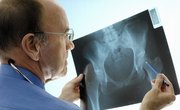Orthopedic surgeons specialize in the diagnosis and treatment of the musculoskeletal system, which includes bones, joints, ligaments, muscles and tendons. To become a surgeon, students must first complete an undergraduate program earning the necessary pre-medical course credits in science, math and English, followed by four years of medical school. In addition, following medical school, doctors are required to complete five years of medical residency, with an extended year for an orthopedic fellowship specialty.
Preparing for the Residency
Although students do get a taste of several specialties during medical school, it is during the residency that the focus becomes specific. In the final year of medical school, doctors begin applying for their orthopedic studies at the colleges and universities offering this concentration. The United States has more than 40 possible schools where orthopedic residency studies are offered, including the University of California, Emory University, George Washington University and the University of Florida.
The Residency in Orthopedic Surgery
Johns Hopkins in Baltimore, Maryland, has been training orthopedic surgeons for more than 100 years. Doctors study musculoskeletal conditions involving the spine, hand, foot/ankle, shoulder, hip/knee, pediatrics, sports medicine, oncology and trauma, which is similar to orthopedic residencies across the country. Residents primarily train through clinical rotations organized around orthopedic sub-specialties and participate in rotations where they work closely with patients. During the residency, doctors are involved in formal education each week and are encouraged to work in research regarding their special interests.
The Orthopedic Fellowship
Johns Hopkins offers a post-residency fellowship in arthroplasty. In this one-year program, doctors focus on surgical management of arthritis, osteonecrosis and lesions of the hips and knees. Many other institutions around the country offer different fellowship specialties, and following residency at any school, doctors decide which fellowship focus most meets their professional goals. Vanderbilt University offers fellowships in areas like trauma, pediatrics and foot/ankle, while the University of Washington offers a fellowship in spinal surgery. The University of Wisconsin offers a fellowship in sports medicine. For information on all programs, The American Academy of Orthopaedic Surgery has compiled a complete list of fellowship opportunities.
Orthopedic Certification
In order to become certified by the American Board of Orthopaedic Surgery, doctors must hold a degree from an accredited medical school, possess a valid state license to practice medicine and have completed five years of residency. Certification is voluntary and not required to practice a specialty. However, for fellowship programs, doctors are generally required to be board eligible and generally choose the board certification route.
Related Articles
References
Resources
Writer Bio
Tonda Bian is an education specialist. She has Bachelor's and Masters degrees both specializing in education and English. She also has an EJD in law--research and writing. Her career has included teaching in three colleges and working as a researcher, writer and editor for more than 20 years.











